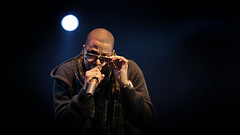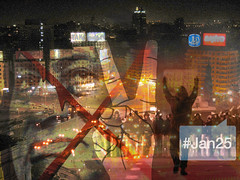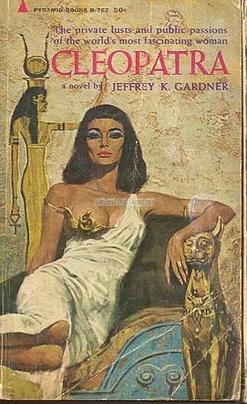|
|
| Jay-Z (Shawn Corey Carter) in concert -Image by NRK P3 via Flick |
As I walked out of a store in Silver Spring, Maryland a
few years ago, a 30 - something African American gentleman,
tried to strike up a conversation with me. Unfortunately for him, the first
words that came out of his mouth were, “excuse me, Miss Fufu…” to which I promptly
interrupted, “I don’t eat
fufu, I am not from Nigeria!”. I then continued to walk
past him. His immediate response was apologetic, “my bad … my apologies, I didn’t mean
anything by it”. Even though this misguided
suitor’s intention was not to insult or do harm, his statement carried a lot of
baggage. Firstly, his statement projected the stereotype in America that Africa
was one country - and that country was Nigeria. Secondly, the idea that he
thought I ate fufu because I looked African was misplaced. My denial about
eating fufu to him did not stem from a desire to disassociate myself with
African food, but rather a desire to be didactic about cultural truths. Having
come from southern Africa, I was not too familiar with what exactly fufu was at
that time, but I was able to locate it as a West African, specifically Nigerian
dish. As I pondered on my drive home about stereotypes about Africa, a few
thoughts about African stereotypes raced through my mind. His statement
reminded me of how little Americans new about the continent and made me think
about where there stereotypes originated. In brief, he had stereotyped me as a
young, black, African female - I had become the new stereotypical African archetype,
Miss Fufu.
It was during this same year that Jay-Z’s hit song “Girls,
Girls, Girls” was playing on the airwaves. The line that stood out to me (and
probably to impressionable stranger) when I first heard this song was:
I'm like: "excuse me Ms. Fufu, but when I met your ass
You was dead broke and naked, and now you want half"
These lines from Jay-Z play into popular stereotypes about Africa
in a fundamental way. It speaks to popular stereotypes image of Africans being ‘poor’,
‘primitive’ and lacking ‘civilization’. Through this line, Jay-Z takes on the role of Kipling's ‘
White Man’s Burden’ - civilizing his African girlfriend. He also becomes an oppressor
of women because he feels that his wife is not entitled to half because of her
country (continent) of origin – Sending a clear message that African women do
not deserve to have material or emotional support because they are somehow not
deserving of this because of an association with the stereotypes of ‘poverty’
or ‘coming from nothing’. These lyrics follow, and are a response to a preceding
line in the song:
I got this African chick with Eddie Murphy on her skull
She like:"Jigga Man, why you treat me like animal?"
These lines preceding lines set up the players in the song,
an African female that is somehow ‘wearing a (bone) skull’ of Eddie Murphy and whom
is being treated like an animal by ‘Jigga man’ (another name for
Jay Z). The
description of the ‘skull wearing’ incidentally, is reminiscent of his wife
Beyonce’s infamous (and equally offensive) ‘tribute to Africa’ photo shoot where she dresses in black face
and wears bones, animal print and tribal paint. For well traveled celebrities
that have been to the continent (ie Tanzania, and South Africa), it seems that broadening
of cultural horizons in the Knowles-Carter household, has so far served to reinforce stereotypes.
This line is equally problematic because it plays in to power dynamics between
the
global North and Global South. Here, he presents himself as famous American
rapper in a relationship with a poor African girl that he mistreats. It sends
the message that African women are like animals, and such need to be treated
accordingly. To show how his attitude translates in his everyday actions, it reminds me of a video that I saw years back of Jay-Z literally treating journalist/girl like an animal by physically assaulting (hitting) her for taking his photo (
see Video:Jay-Z assaults African journalist). In some reports,
critics have said this occurred in South Africa though this is unconfirmed. For young African women, this type of representation can be
damaging at multiple levels ranging from domestic violence to paternalism. From a feminist perspective, it also reminds us of
unequal gender roles in relationships. The African woman in this song gets oppressed
(treated like an animal), for being female, black and African. The rest of this
song is equally ethnically biased and misogynist because he
proceeds to name racist and sexist stereotypes about women from all over the
world. In fact in this song, no woman in this world is left untouched - the Latino
woman who love cooking rice, the Chinese woman bootlegging his music, the African-American
woman that snaps her fingers and swings her neck, the list goes on (
See lyrics). So how did it come that Jay-Z thought it was okay to treat African women like an animals on video and in real life?
I found out later that with these lyrics, Jay Z
was making reference to the famous comedy skit in
‘Raw’ done in the 1980’s by comedian Eddie
Murphy (This was
his tribute to
Africa). In this skit, Eddie Murphy recounts
how he marries an African female from the 'bush' called ‘umfufu’ that he can
control. This is a problematic stereotype about indigenous nomadic peoples and
the nature of relationships in Africa. It feeds into the popular stereotype of
the ‘submissive’ African woman and her stereotypical ‘abusive African man’ (She
should be ‘used’ to being treated like that because that how African men treat their
women!) Mr. Murphy’s comedy skit, unfortunately, was reproduced from comedy to
music. Some may argue that it’s 'harmless' entertainment but the problem here is
that in the entertainment industry through Hollywood, music, comedy etc... Africans are
only portrayed in one way (backwards and uncivilized) and it is almost always
negative. Nevertheless, the problem with ethnic comedy is that comedy is relies
on stereotypes. In order for people to find a skit funny, they need to ‘understand’
the stereotype – they need to have a preconceived notion of the subject of the
joke. In this case, it is obvious that Jay Z understood the joke based on his
understanding on Africa. This is a clear example of how popular stereotypes about
Africa are reinforced in mass media outlets like music and live ‘entertainment’
and transferred to the general American public. It is unfortunate that both Eddie
Murphy and Jay Z have a large African fan base too. I find it unfortunate when
Africans are forced to participate in their own stereotyping or when Africans can’t
(or don’t) do more to protest against these offensive stereotypes on music
stations like MTV Base (MTV Africa) and perhaps, Channel O. For some reason,
when it comes to Africa, the entertainment industry in The U.S. thinks stereotyping
is okay. These characterizations are than internalized by the American public, like the man in the store in Maryland. The stereotype is also used as a lens when commenting on the validity of
Nomvuyo Mzamane's case against Oprah by another minority blog contributor on the Black Gay Gossip blog article, "Ms. fufu is Suing Oprah".
|
|
| Jay Zs bestselling book, "Decoded" Image by Urban Mixer via Flickr |
A few weeks ago a flier advertising Jay Z’s book ‘decoded’ was
sent to one of the teaching assistants (and faculty). The Amazon book review by
Juliet Disparte reads “it is a rare glimpse of the unexpectedly deep meanings
behind the most recognizable rap lyrics of the last decade”. In the growing wake of university courses that touch on Jay Z, I wondered what
lessons Jay Z wanted me, as a young African female teaching assistant to convey to students about decoding his lyrics. I
had first heard about the book on a promotional episode of “Oprah”, now I cant help
but wonder in what manner Jay Z and Eddie Murphy would talk to the young ladies at her academy in South Africa there during there publicized philanthropy trips, “Excuse
me,
Ms Fufu? I donated school books, now you want half?”







